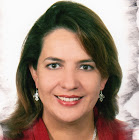Using Rules from St. Benedict
ADVISORY ARTICLE
By Angelica Larios
Mexico City, Mexico
Leadership development in several industries becomes more relevant today— more so, in a project environment. Questions regarding how to develop the leadership of others remain in the heads of executives. Giving continuity to plans, actions, strategy, and short- and long-term objectives become essential for any organization’s ongoing growth. A leadership development system should be aligned with the organizational strategy and with differentiated corporate roles in mind to enhance an individual’s leadership effectiveness and the organization. Leadership development aims to expand a person’s capability to be effective in leadership roles and processes, which is more important than ever for project managers today.
Leadership development has found several processes—such as performance improvement, succession management, and organizational change—that help leader in this endeavor. However, ethical aspects sometimes remain untouched or ignored when leadership without ethics is just not possible. Taking the teachings from St. Benedict will allow us to understand better and complement personal leadership, help others grow in ethical aspects as well, and consider values as part of the leadership development process.
The Rule of St. Benedict (St. Benedictus, the abbey of Monte Cassino, Dean, & Legge, 1964) is well known and useful to build a unique set of values, conduct, and ethical guidelines. It is also helpful when it is applied in leadership development that is sustained through several organizational challenges. This set of rules is known to offer the opportunity to use ethics as a fundamental part of this process.
As we continue, you may notice that St. Benedict’s rules are in total compliance with the PMI Code of Ethics and Professional Conduct (PMI, n.d.).
Why St. Benedict?
References to religious figures sometimes seem awkward or bizarre in a business or project management context. However, relevant concepts can be applied in the organization, management, and leadership aspects that might possess an ethical background that is challenging to find in other examples.
Not much is historically known about St. Benedict, apart from the short biography found in the second volume of Pope Gregory the Great’s four-book Dialogues (593 A.D.). According to Christopher (2011), St. Benedict (ca. 480-547) was born within a wealthy family; he was a Roman noble who later became a monk. Since St. Benedict was born in Nursia, Italy, he is also commonly referred to as Benedict of Nursia.
He left Nursia for Rome as a teenager in pursuit of higher education. Still, He experienced a deep aversion to the city’s hedonistic ways and the prevalence of Roman timocratic leadership approaches. Timocratic leadership (from timao, the Greek word for honor) is a leadership mainly interested in recognition, power, privilege, and prestige.
Benedict fled Rome and took up residence in a cave near Subacio, the town where he devoted his time in solitude and searching for God. His reputation for wisdom, humility, and godliness soon drew crowds of willing followers. He responded to this call to lead by establishing communities where followers could “seek God” and confront the contemporary pagan culture. He finally settled in one of these communities, on a hill above Cassino’s town (today, the Abbey of Monte Cassino). While at the monastery in Monte Cassino, he took time to reflect on the ideals of life and compiled a set of guiding principles called the Rules of St. Benedict (RSB), where he constructed a rule of life and organization for these communities. The Rule of St. Benedict has served monastic Christian communities since that time. Its instructions on spiritual formation and humility have been the foundation for organizational leadership development in many Christian communities.
Although the RSB, which contains 73 chapters, is designed to provide a structure, guidance, and inspiration to live out one’s life in faithful service to Christ. Most of the rules deal directly with human interaction and, therefore, have widespread appeal and application to modern organizations, especially human resource management. (Christopher, McBey & Scott-Ladd, 2011).
Personal Ethical Values According to St. Benedict
According to Bekker (n.d.)., St. Benedict’s process description of the formation of humility in his rule might be the world’s first 12-step program to help leaders and followers serve in humility and deference. His twelve steps toward humility can be summarized as follows:
More…
To read entire article, click here
How to cite this article: Larios, A. (2020). Ethical Leadership Development Using Rules from St. Benedict, PM World Journal, Vol. IX, Issue XII, December. Available online at https://pmworldlibrary.net/wp-content/uploads/2020/11/pmwj100-Dec2020-Larios-ethical-leadership-development-using-rules-from-St-Benedict.pdf
About the Author

Angelica Larios
Mexico City, Mexico
![]()
Angelica Larios, MBA, PMP, is a project manager with more than 20 years of experience in implementing software projects related to business intelligence, planning and budgeting, and financial consolidation solutions based on software applications to support the business decision process. She is the owner of ALACONTEC, an I.T. consulting company founded in Latin America. She has held several professional positions in private and public organizations, such as the Health Ministry in Mexico as I.T. director, and as a business manager for several firms in Mexico.
She holds a master’s degree in business administration and a bachelor’s degree in computer science from National University of Mexico (UNAM) in addition to her studies in project management and her Project Management Professional (PMP)® certification, which have helped her to consolidate her career and have a better understanding of what businesses and projects need nowadays. She is a doctoral student in strategic leadership at Regent University, VA, USA; she is a PMI volunteer since 2007, starting in the local Mexico chapter, being Past President. At a global level, she has been part of the Chapter Membership Advisory Group (CMAG), the Board Volunteer Advisory Committee (BVAC), and the Ethical Membership Advisory Group (EMAG).
Angelica can be contacted at angelica.larios@gmail.com
To view other works by Angelica Larios, visit her author showcase in the PM World Library at https://pmworldlibrary.net/authors/angelica-larios/









